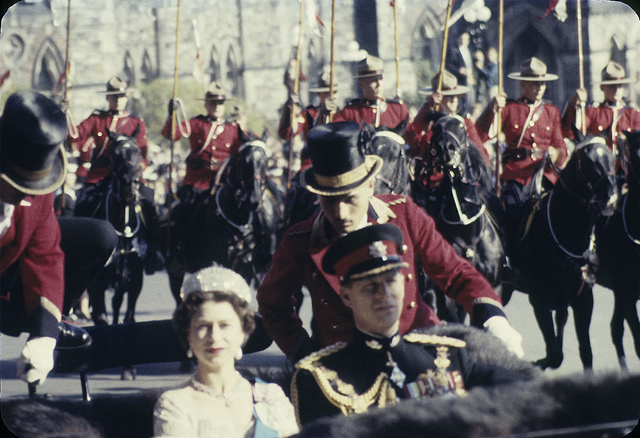Please support our coverage of democratic movements and become a supporting member of rabble.ca.
On July 14, France celebrates the storming of the Bastille, marking the passing of the Ancien Régime, which included feudalism, and an absolute monarchy. On July 4, Americans celebrated Independence Day, the end of colonial rule by Great Britain.
July 1 Canada celebrated Confederation, a constitutional arrangement replacing the 1840 Act of Union, which had abolished the Quebec National Assembly, and had been called by future Québec premier P.J.O. Chauveau in a celebrated poem “Union of the Canadas, Party Day for Bankers.”
In his landmark “left nationalist” History of Canadian Business, R.T. Naylor showed how Confederation kept repaying financiers. For instance, it enabled the public to finance Canadian Pacific Railways (CPR). In this respect, as well as in restoring the Quebec National Assembly, 1867 was a great success. By 1914, CPR was the largest transportation and communications company in the world.
Quietly last March, and with the unanimous consent of the House of Commons, the Harper government managed with one piece of legislation to affirm that Canada remains a monarchy, and that it also remains subservient to the British Parliament.
The issue of Canadian independence came to light in June when two Laval University law professors initiated a legal challenge to the Canadian law which asked Parliament to “assent” to the British law providing changes to the law of monarchal succession.
British law would now allow the first born female to succeed to the throne, and no longer remove someone with a Roman Catholic spouse from the line of succession.
The Laval professors pointed out that a change to the office of the monarchy falls under Article 41 of the Canadian Constitution, and requires an amendment to be approved by the provinces. In addition, by requiring that future monarchs be Anglican the British law contravenes the Canadian Charter of Rights, since it enshrines religious discrimination.
By ignoring the precedents (Canada introduced its own legislation in response to the abdication crisis of 1937) and the experience of other countries (Australia introduced a constitutional amendment requiring approval by its constituent states) the Harper government action reveals that contrary to what was proclaimed following the 1982 patriation of the Canadian Constitution, Canada is not a sovereign jurisdiction. Rather, it remains subject to British ancient law.
Canadian parliamentary democracy could function perfectly well without the legal fiction of having the British Monarch serve as Queen or King of Canada. The Governor General serves de facto as the Canadian Head of State. Constitutionally, the GG acts as the “Crown” that assents to legislation, opens Parliament, summons the prime minister to form a government, and welcomes other heads of state.
When the reign of Elizabeth II, a long-serving monarch, ends, it would be appropriate for Canada to update the Constitution to reflect current political realities. Having the British monarch serve as the Canadian monarch is not necessary or desirable. In the Canadian context the monarchy is a relic of colonial times. Hereditary monarchies are an anachronism, useful for promoting tourism, or as a distraction from serious matters of state.
Rather than assent to a British law, the Canadian Parliament should adopt legislation providing that the current Queen be the last to serve as Canadian Head of State. The agreement of the Canadian provinces to constitutional reform could be sought and obtained so that the Canadian constitutional regime allow for the office of the Governor General to take over the role played by monarchy.
There is no need to foresee changes to the method of selection of the GG. An elected Head of State is incompatible with a parliamentary regime since it would set up a competing centre of democratic legitimacy — one emanating through election — to cabinet government responsible to Parliament, and ultimately to the people.
By having Elizabeth II serve as its last monarch Canada could simultaneously, without violence, end its own Ancien Régime, and establish its independence from Britain. That would be worthy of celebration.
Duncan Cameron is the president of rabble.ca and writes a weekly column on politics and current affairs.
Photo credit: Rosemary Gilliat Eaton. Library and Archives Canada, e010950493/Flickr



